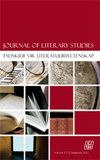Writing the Elusive Narrative of Soweto-Based Community Theatre, 1984–1994
IF 0.1
4区 文学
0 LITERARY THEORY & CRITICISM
引用次数: 0
Abstract
The focus of the article is on writing the history of community theatre, which was a popular avenue for artistic expression for a number of township playwrights. During the period 1984–1994, there was a flowering of the arts in Soweto. Numerous popular community plays were staged, but this has not been documented due to a lack of record-keeping by the playwrights and the absence of formal theatre structures for township-based playwrights. In contemporary writing, theatre received attention from newspapers, with Gibson Kente, Matsemela Manaka and Maishe Maponya being the most prominent playwrights. Because of their popularity in South Africa and esteem with international audiences, the stature of the three playwrights presents an opportunity to see how a history of Soweto community theatre may be written. This article proposes that memory studies facilitates the writing of a more comprehensive narrative because it enables the melding of various sources: newspaper articles, theatre programmes, private archives, and information and insights from interviewees. Halbwachs’s methodology allows for a discussion in which theory (memory studies) and practice (writing the narrative) present evidence that community theatre has contributed to the development of theatre in South Africa. Without discounting the significance of (written) history, Halbwachs foregrounds the importance of memory, which resides with “people still living,” as key to formulating a narrative of the past. This is pertinent to Soweto community theatre, since the insights from interviewees and various sources also help to re-examine the perceived limitations attached to the label “community theatre.”写以索韦托为基础的社区剧院的难以捉摸的叙事,1984-1994
这篇文章的重点是写社区戏剧的历史,这是许多乡镇剧作家艺术表达的流行途径。在1984-1994年期间,索韦托的艺术蓬勃发展。许多受欢迎的社区戏剧被上演,但由于剧作家缺乏记录,以及城镇剧作家缺乏正式的剧院结构,这些都没有被记录下来。在当代写作中,戏剧受到了报纸的关注,吉布森·肯特、Matsemela Manaka和Maishe Maponya是最著名的剧作家。由于他们在南非的知名度和国际观众的尊重,这三位剧作家的地位提供了一个机会,看看索韦托社区戏剧的历史是如何书写的。本文提出,记忆研究有助于撰写更全面的叙述,因为它可以融合各种来源:报纸文章,戏剧节目,私人档案,以及来自受访者的信息和见解。Halbwachs的方法论允许讨论,其中理论(记忆研究)和实践(撰写叙述)提供证据,证明社区戏剧对南非戏剧的发展做出了贡献。Halbwachs没有贬低(书面)历史的重要性,而是强调了记忆的重要性,它存在于“仍然活着的人”中,是形成对过去叙述的关键。这与索韦托社区剧院有关,因为来自受访者和各种来源的见解也有助于重新审视附加在“社区剧院”标签上的感知限制。
本文章由计算机程序翻译,如有差异,请以英文原文为准。
求助全文
约1分钟内获得全文
求助全文
来源期刊

Journal of Literary Studies
Multiple-
CiteScore
0.50
自引率
0.00%
发文量
0
期刊介绍:
The Journal of Literary Studies publishes and globally disseminates original and cutting-edge research informed by Literary and Cultural Theory. The Journal is an independent quarterly publication owned and published by the South African Literary Society in partnership with Unisa Press and Taylor & Francis. It is housed and produced in the division Theory of Literature at the University of South Africa and is accredited and subsidised by the South African Department of Higher Education and Training. The aim of the journal is to publish articles and full-length review essays informed by Literary Theory in the General Literary Theory subject area and mostly covering Formalism, New Criticism, Semiotics, Structuralism, Marxism, Poststructuralism, Psychoanalysis, Gender studies, New Historicism, Ecocriticism, Animal Studies, Reception Theory, Comparative Literature, Narrative Theory, Drama Theory, Poetry Theory, and Biography and Autobiography.
 求助内容:
求助内容: 应助结果提醒方式:
应助结果提醒方式:


